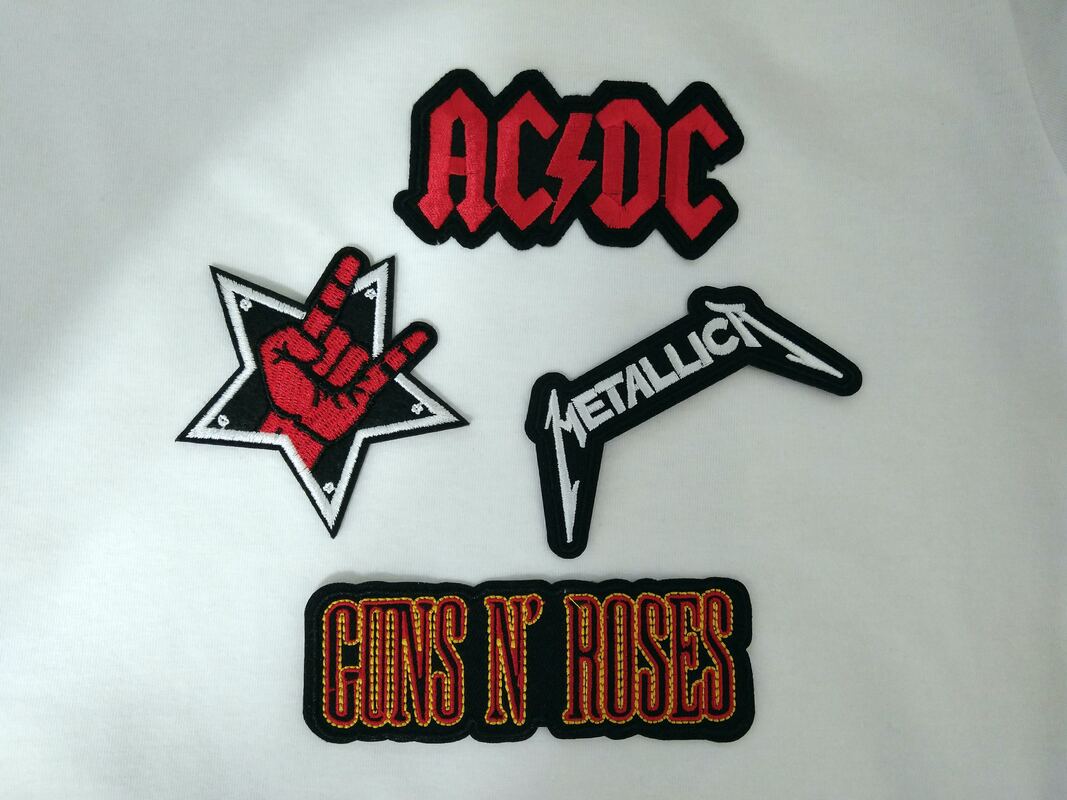|
Noise-induced hearing loss is the only preventable type of hearing loss. Listening to sounds that are at least 70 decibels (dB) over an extensive amount of time can lead to hearing loss. Noise over 120 decibels can lead to immediate and permanent hearing loss.
Wearing earplugs is recommended, but not all earplugs are made to protect your ears from the same level of noise. This is why some people still experience hearing loss even when they wear protection for their ears. Scoring Earplugs According to the Noise Reduction Rating System (NRR), earplugs are scored on a scale. Each score equals the number of decibels that the earplugs block out. For example, 24 NRR will only protect 24 dB of sound. The most decibels that a pair of earplugs can block is 33 dB. On average, earplugs can block out 15-30 dB. If you wear a 24 NRR earplug while attending a rock concert (about 120 dB), you will still be exposed to 96 dB which can cause hearing loss. Here’s a guide to help you select earplugs based on your lifestyle. Are You Attending or Performing at a Rock Concert or a Concert with Loud Music? Performers and audience members should always wear hearing protection during a loud concert. As previously mentioned, the sound levels at an average rock concert can reach up to 120 dB. Classical music can reach 98 dB. Many musicians have complained about the music sounding distorted when wearing earplugs, which can obviously be a problem while trying to perform. As a result, many musicians have stopped wearing hearing protection. If they’ve stopped wearing hearing protection, now is the time for them to use it again. Earplug technology has made advancements. They can now equally reduce decibels, without distorting the music. There are earplugs specifically designed to protect the ears while listening to different music genres. Do You Use Power Tools? If you use power tools at home, you are probably being exposed to noise that can damage your hearing. Electric drills, sanders, and saws can create 95 to 120 dB when in use. A few hours of this noise exposure can lead to severe hearing loss. Make sure your earplugs have at least 15 NRR. Are You an Active Military Service Member? Anyone who serves in our military has the highest risk of noise exposure which can seriously damage hearing. About 7.5 percent of military service members reported having hearing loss after being deployed. Veterans reported having a significantly higher rate of hearing problems, like tinnitus. Make sure you are being provided with strong hearing protection. There are now earplugs that are advanced and military-improved; they feature two settings. The main setting lets users hear commands and other background noises. The other setting has an NRR 33 rating, which is the highest possible rating. This setting can keep your hearing safe through loud combat noises including gunfire and explosions. Do You attend Arenas to Watch Live Sports? Football stadiums can be a fun place to be, but they can also be very loud. One football game recorded 142.2 dB of noise from the crowd. That’s almost the same noise level as a firecracker. Temporary hearing loss can occur. There’s still a risk if you wear low-level earplugs. That’s why you should get hearing aids that withstand more substantial noises if you plan to attend a sports game. It’s important to protect your hearing. Choosing the proper hearing protection is crucial. If you see earplugs that are not specifically made for the activity that you are going to participate in, do some research to find out the maximum decibel level of the specified activity, and find earplugs that would be suitable for that decibel range. It only takes one very loud exposure to noise to cause permanent hearing loss. Preventative measures are easy and affordable. Contact us at Pure Sound Hearing if you or a loved one are experiencing hearing loss. Our offices also offer earplugs, so if you are planning an outing where it might be loud, stop by one of our office locations to purchase a pair of earplugs. AC/DC’s singer-songwriter, Brian Johnson, was nearly filled with hopelessness after hearing problems drove him to leave the band’s 2016 tour Rock or Bust. Axl Rose replaced him.
Johnson shared in his new memoir, The Lives of Brian, that he had suicidal thoughts after leaving the tour or risked going deaf. Johnson mentioned during an interview with Rolling Stone that he had “pretty serious” issues with his hearing and could not hear the tone of the guitars while on stage. He remembered how painful it felt when he told his tour manager that he wouldn’t be able to perform for the rest of the tour. "I called Tim, the tour manager, on my mobile right there in the room to tell him that I just couldn't continue," Johnson reportedly writes. "It was one of the most difficult conversations of my life — the pain of it made worse over the weeks that followed when the tour simply went on without me. It was a sheer cliff. I didn't tumble down. I was in free fall." Axl Rose, the frontman of Guns N’ Roses, replaced Johnson. He said Rose did a “great job” even though it was still a crushing ordeal. Before receiving support for his hearing problems, Johnson was “literally getting by on muscle memory and mouth shapes” while on stage. He said it felt “crippling” to be “standing there and not being sure” during performances. He had a small device that utilized the bone structure in the skull as a receiver. The device allowed him to return to performing on stage. AC/DC hasn’t done a tour since Rock or Bust, but Johnson joined the band again and recorded Power Up, their 2020 album. The surviving band members - Johnson, lead guitarist Angus Young, bassist Cliff Williams, and drummer Phil Rudd - were reunited. Malcolm Young passed away in 2017. Since 2014, his nephew Stevie Young has been performing in his place. If you or someone you know is considering suicide, please contact the 988 Suicide and Crisis Lifeline by dialing 988, text "STRENGTH" to the Crisis Text Line at 741741 or go to 988lifeline.org. To get help with your hearing loss, contact Pure Sound Hearing for a complimentary hearing test and consultation. We also sell earplugs so you can protect your ears next time you go to a live concert. Are you looking forward to live music performances coming to Lancaster County this summer? Or are you traveling out of the area to see your favorite musician or band? Do you enjoy listening to the banter in between songs from the singers?
Whether you’re a hearing aid user or not, prepare for your upcoming concert. Sometimes it can be challenging to hear at a comfortable and safe level. Most people with hearing loss face challenges with hearing higher frequencies. Therefore, some music or vocal ranges are difficult to hear. On the other hand, some live shows, like rock concerts, can be dangerously loud for people of any hearing range. Being part of the audience at a rock concert can create risks for everyone who doesn’t take precautions beforehand. According to the National Institutes of Health, 1 in 3 people between 65-74 and half of people older than 75 experience hearing loss. Standing too close to speakers can lead to hearing loss in minutes. Exposure to noise that reaches over 70 decibels (dB) for a prolonged period can harm your hearing. Noise over 120 dB can instantly damage your ability to hear. Tinnitus and hearing loss are common occurrences after attending a loud live concert. Sometimes it’s temporary, or it can last longer. Seek help immediately if you experience either of these symptoms. Before Leaving to Attend a Concert The JAMA Otolaryngology-Head & Neck Surgery published a study in 2016 based on 51 concert attendees. They concluded that just 8 percent of concert-goers who donned earplugs with a noise reduction rate of 18 dB experienced noise-induced hearing loss (NIHL) compared to 42 percent of those who did not wear earplugs. Just 12 percent of earplug users experienced tinnitus compared to 40 percent of nonusers after a 4 ½ hour concert. If you are ready to attend a concert, you’re in luck. Pure Sound Hearing has simple foam earplugs available in our offices. Selecting the Safest Seats or Standing Area for Your Hearing It doesn’t sound fun, but being further away from speakers or the stage would be safer. Staying about 500 feet away from anything that emits loud noise is safest. Giant speakers are usually on the stage, but sometimes they can be located in other spaces in the venue. You can contact the concert organizers to figure out which area is safest for you. Venues located outside can be safer because the sound doesn’t get trapped inside a confined space, as it does with an indoor venue. If Necessary, Take a Break Sometimes, if the sounds are overwhelming, temporarily move yourself to a quiet space - maybe you need to go outside the venue. You can rest your ears for as long as you need, which could help prevent hearing damage. Use a sound meter app to measure the noise levels in your environment. For Hearing Aid Users If you have hearing loss and use hearing aids, you probably want the best possible experience at a concert. In some cases, hearing aids might lead to a not-so-great listening experience. The devices have been designed with speech as the primary listening experience instead of music. Music has more ranges of frequencies than speech sounds that are difficult to reproduce with hearing aids. With newer hearing aid features, there can be a problem with how music is perceived. Feedback suppression or blocking out background noises may inadvertently suppress sounds from other instruments, so you’d miss out on a full experience. Talk to your hearing instrument specialist, who will demonstrate how to adjust your hearing aids’ volume setting while experiencing a live concert. You can also ask how to stop other features, like feedback suppression or noise reduction. Your hearing aids are programmable by your hearing instrument specialist with a “music setting” feature that automatically switches to this feature. Before traveling to your concert venue, find out if it has a hearing loop system. This sound system is available in most public spaces that connect to people’s hearing aids or assistive listening devices. If you experience hearing loss and need hearing aids, schedule an appointment with Pure Sound Hearing for a hearing test and consultation with one of our hearing aid providers in Elizabethtown, Lititz, or Strasburg. |
Categories
All
|
-
products
- Rexton Emerald M 8C RIC
- Rexton inoX CIC 8C
- Rexton Mosaic M 8C BTE
- Rexton Mosaic P 8C BTE
- Rexton Stellar RIC 8C
- Rexton Sterling 8C CIC / IIC
- Rexton Sterling 8C ITE / ITC
- Rexton Emerald XS 8C RIC
- Rexton Emerald S 8C RIC
- Signia Active Pro
- Signia CROS AX
- Signia CROS Hearing Solutions
- Signia Insio Charge&Go AX
- Signia Insio Nx IIC/CIC
- Signia Insio Nx ITC/ITE
- Signia Intuis 3 Family
- Signia Motion Charge&Go X
- Signia Motion 13 Nx/Motion 13 P Nx
- Signia Prompt
- Signia Pure Charge&Go AX & T AX
- Signia Pure 312 AX
- Signia Pure 10 Nx
- Signia Pure 13 BT
- Signia Pure 13 Nx
- Signia Silk X
- Signia Styletto AX
- Signia Styletto X
- SERVICES >
- about
- blog
- Insurance
- contact
|
© 2023 Pure Sound Hearing Aids. All Rights Reserved.
|
Proudly powered by Weebly
-
products
- Rexton Emerald M 8C RIC
- Rexton inoX CIC 8C
- Rexton Mosaic M 8C BTE
- Rexton Mosaic P 8C BTE
- Rexton Stellar RIC 8C
- Rexton Sterling 8C CIC / IIC
- Rexton Sterling 8C ITE / ITC
- Rexton Emerald XS 8C RIC
- Rexton Emerald S 8C RIC
- Signia Active Pro
- Signia CROS AX
- Signia CROS Hearing Solutions
- Signia Insio Charge&Go AX
- Signia Insio Nx IIC/CIC
- Signia Insio Nx ITC/ITE
- Signia Intuis 3 Family
- Signia Motion Charge&Go X
- Signia Motion 13 Nx/Motion 13 P Nx
- Signia Prompt
- Signia Pure Charge&Go AX & T AX
- Signia Pure 312 AX
- Signia Pure 10 Nx
- Signia Pure 13 BT
- Signia Pure 13 Nx
- Signia Silk X
- Signia Styletto AX
- Signia Styletto X
- SERVICES >
- about
- blog
- Insurance
- contact




 RSS Feed
RSS Feed